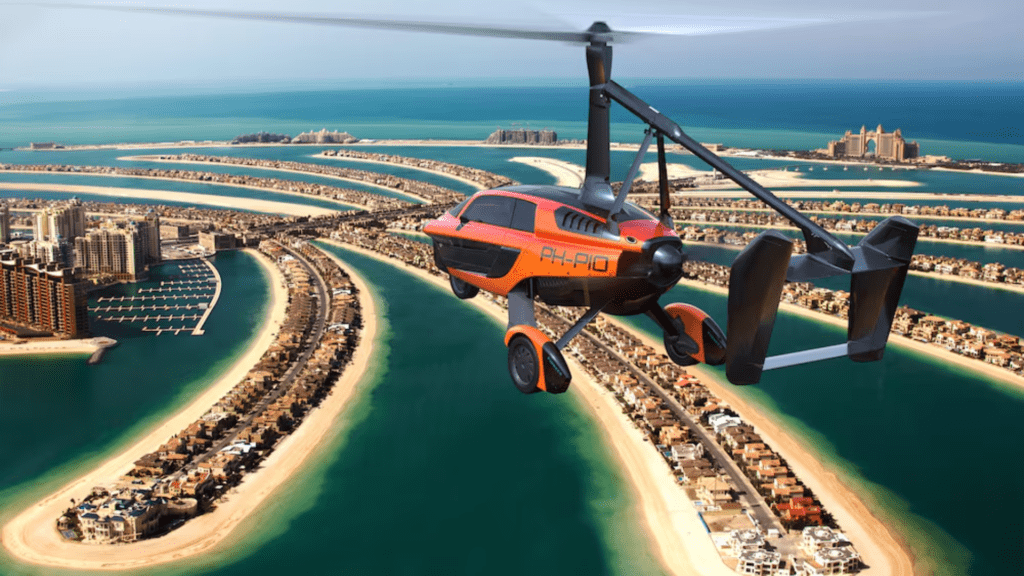Aviation company Aviterra has inked a groundbreaking deal with Dutch firm PAL-V to introduce the world’s first flying cars to the Middle East and Africa. This collaboration marks a significant milestone in the realm of urban air mobility, offering a glimpse into the future of transportation.
Aviterra’s Partnership with PAL-V: Aviterra, a prominent aviation and aerospace component manufacturing company based in Dubai, has announced plans to purchase over 100 of PAL-V’s Liberty flying cars. The Liberty flying car, an innovative hybrid of a gyroplane and an automobile, has garnered attention for its transformative potential in urban transportation.
Features of the Liberty Flying Car: The Liberty flying car boasts a seamless transition between ground and air travel, resembling a scene from a James Bond movie. In drive mode, the vehicle can reach speeds of up to 100kph in under nine seconds, offering a dynamic driving experience. With a swift transformation process taking just five minutes, the Liberty elevates into an aircraft, equipped with a flight range of 400-500km and a maximum speed of 180kph.

Advantages Over eVTOLs: While Abu Dhabi and Dubai have committed to introducing electric vertical take-off and landing (eVTOL) aircraft, the Liberty flying car distinguishes itself by offering door-to-door transport capabilities. Unlike eVTOLs, which require designated landing pads, the Liberty can seamlessly navigate from home to destination, revolutionizing the concept of personal mobility.
Market Potential and Pricing: Targeted primarily at high-end corporate and government clients, the Liberty flying car carries a price tag of $799,000. Its versatility appeals to various sectors, including border control, homeland security, and emergency response teams. With increasing demand for efficient and flexible transportation solutions, the Liberty represents a significant advancement in urban air mobility.
Certification and Pilot Training: PAL-V is currently in the final stages of certification with the European Union Aviation Safety Agency (EASA). Upon approval, Aviterra will seek regulatory clearance from the UAE’s General Civil Aviation Authority (GCAA) and other regional authorities. Prospective pilots must undergo specialized training, including theoretical coursework and practical lessons, to operate the Liberty safely.
Future Prospects and Production Timeline: Anticipation surrounds the imminent arrival of the Liberty flying cars in the Middle East and Africa, with Aviterra poised to introduce cutting-edge urban air mobility solutions to the region. PAL-V anticipates commencing deliveries in the first half of the following year, with production capacity expansion underway to meet growing demand.
Conclusion: As Aviterra embarks on its journey to bring flying cars to Dubai, the partnership with PAL-V heralds a new era of transportation innovation. With the Liberty flying car poised to revolutionize urban mobility, the skies of the Middle East and Africa are set to witness a remarkable transformation in the coming years.













